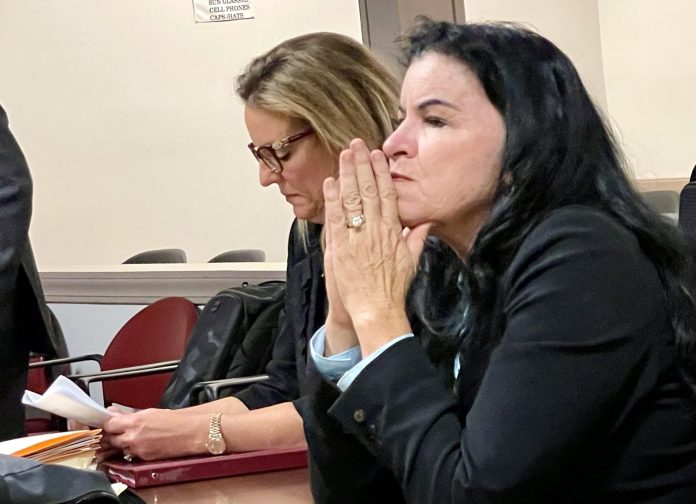
|
Only have a minute? Listen instead
Getting your Trinity Audio player ready...
|
EDINBURG — A visiting judge has denied a motion by Sonia Treviño to recuse the judge who has been presiding in the trial contesting her narrow reelection win for the Hidalgo County Precinct 3, Place 1 justice of the peace seat.
Visiting Judge Joel Johnson denied the motion after hearing more than two hours of testimony and argument in the 430th state District Court room on Monday.
“I’m gonna deny the motion to recuse,” Johnson said.
Less than an hour later, the judge had signed a written order to that effect.
“(T)his Court finds that the evidence presented by the Contestee (Sonia Treviño) is insufficient to show that the Judge Bañales (sic) acted improperly or showed any bias or prejudice in the trial of this case,” the order stated.
Thus came to an end one of many interruptions in the hotly contested trial initiated by Ramon Segovia, the candidate who in mid-June launched a challenge to Segovia’s 31-vote margin of victory in the May 28 Democratic Party runoff for the western Hidalgo County JP race.
At issue this time around was an order that visiting Senior Judge Jose Manuel Bañales signed last Thursday that seemingly ended the trial as Treviño’s attorneys were still eliciting testimony from witnesses.
Language included in the last page of the three-page document stated that Bañales had disqualified enough ballots during prior testimony to declare Segovia the true winner of the election.
The order further stated that it was a final judgment and subject to appeal.
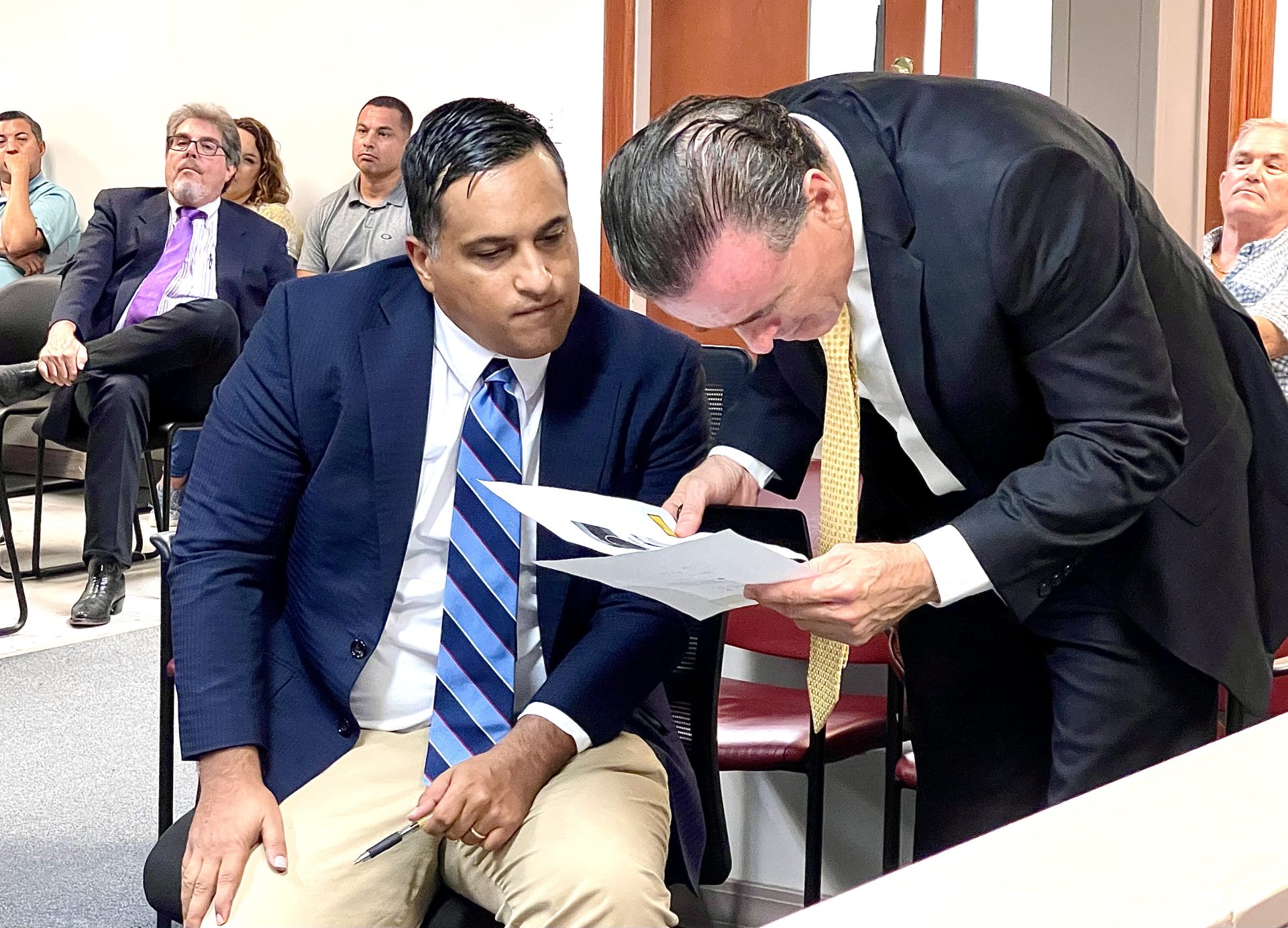
The language discrepancy wasn’t discovered until a member of Treviño’s legal team, attorney Efrain Molina Jr., obtained a printed copy from the case docket, Molina testified during Monday’s recusal hearing.
“I actually ran from the conference room … because I couldn’t believe what I was seeing,” Molina testified.
What Molina had expected the document to contain was written confirmation of an order that Bañales had handed down orally just before the lunch recess Thursday.
In that oral pronouncement, Bañales had ruled that Treviño and her attorneys could not call any of the 170 witnesses they had subpoenaed in hopes of having their ballots similarly disqualified from the challenger’s vote tally.
But when Segovia’s attorneys printed out the proposed order, as directed by the judge, they inadvertently printed off the wrong “last page.”
Instead, Carina Garza de Luna, cocounsel representing Segovia, had mistakenly printed out the last page of another document she and the rest of Segovia’s legal team had prepared in the event they won the trial, according to testimony from lead counsel, Gilberto Hinojosa.
“What has happened here was that this was an innocent mistake that was made by us in submitting the last page of an order that was part of a proposed judgment that we were gonna submit to the judge at the end of the trial,” Hinojosa said.
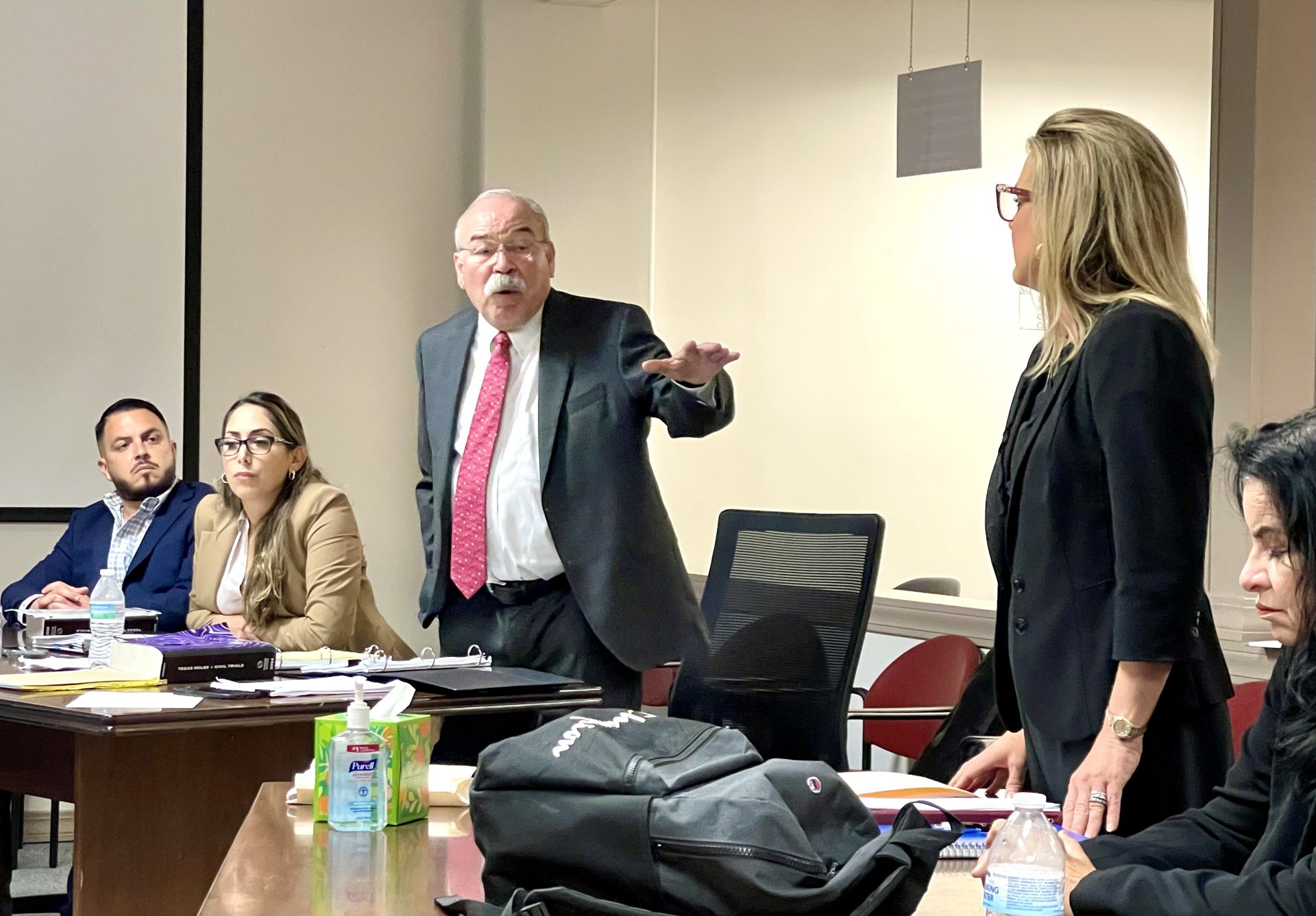
But for Treviño’s attorneys, the “why” and “how” behind the incorrect order didn’t matter as much as the potential appearance of impropriety that occurred the moment Bañales signed the document and filed it for the record.
Treviño’s attorneys argued that the signed document constituted a so-called “ex parte” communication between the judge and Segovia’s attorneys, Hinojosa and Garza de Luna.
Hinojosa pushed back on that assertion vehemently, repeatedly asking all three of Treviño’s attorneys if they had any concrete evidence that either he or Garza de Luna had spoken with the judge outside of their presence.
Molina, the attorney who discovered the problem document, said direct communication didn’t matter. He cited a moment he had experienced some years ago in the very same courtroom before Judge Israel Ramon.
In that instance, Molina had given the judge a document with highlighted areas. When the judge learned that Molina hadn’t given a similarly highlighted copy to opposing counsel, the judge admonished him for what could be considered an ex parte communication.
Another concern that Treviño’s attorneys raised was how the order that Bañales signed in error could cause confusion among members of the public.
They cited posts made to social media that called into question the judge’s impartiality and confusion over whether Bañales had decided the outcome of the case before hearing the entirety of the evidence from both sides.
But again, Hinojosa pushed back, pressing Rick Salinas, the lead attorney representing Treviño, if the person who ran the anonymous Facebook account in question was none other than his very own sister.
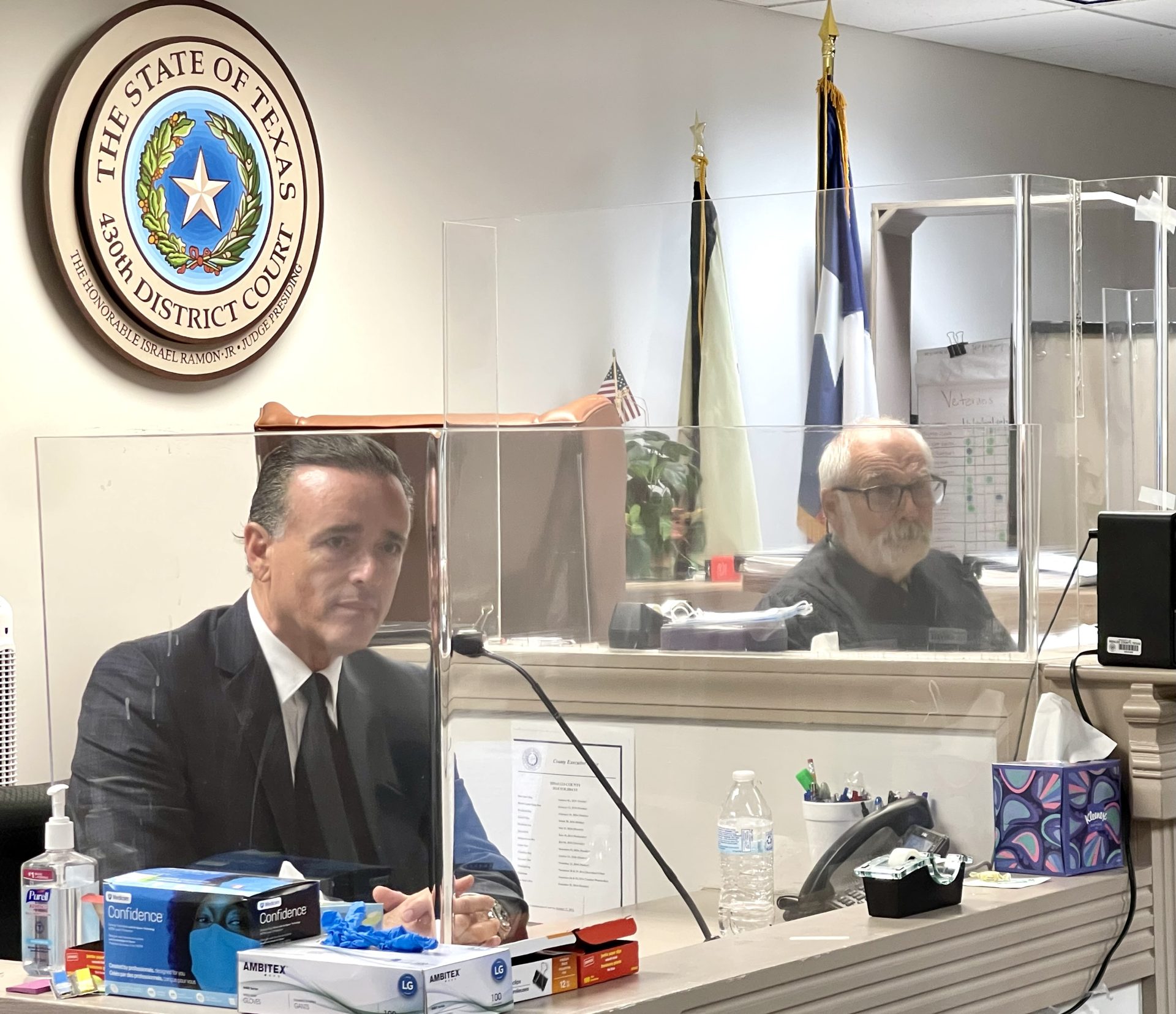
Salinas denied the implication, saying he doesn’t know who runs the page.
Salinas further stated that he had received similar questions about Bañales’ actions from members of the media, though he excluded the three journalists who observed Monday’s hearing.
“I think the media can get a handle on what is happening during this hearing,” Judge Johnson said.
For his part, Hinojosa — who has agreed to interviews about the trial anytime a member of the media has asked over the past three weeks — on Monday openly wondered why there was press coverage at all.
Further, the longtime lawyer blamed the media for Monday’s hearing coming to fruition.
“Had the contestee (Treviño) recognized this and treated (it) for what it was, which was an honest mistake on our part … had they not filed this motion to recuse … this would not have been a story,” Hinojosa said during his own testimony.
“I’m also raising it as to why the media was paying attention to this case,” Hinojosa added a moment later when both Treviño’s attorneys and the judge asked why he kept focusing on the press.
Ultimately, Judge Johnson declined to recuse Bañales from the case and asked that a written order be produced for him to sign — one with all the attorneys’ signatures as well, “so that we’re not confused about what I’m signing,” the judge said.
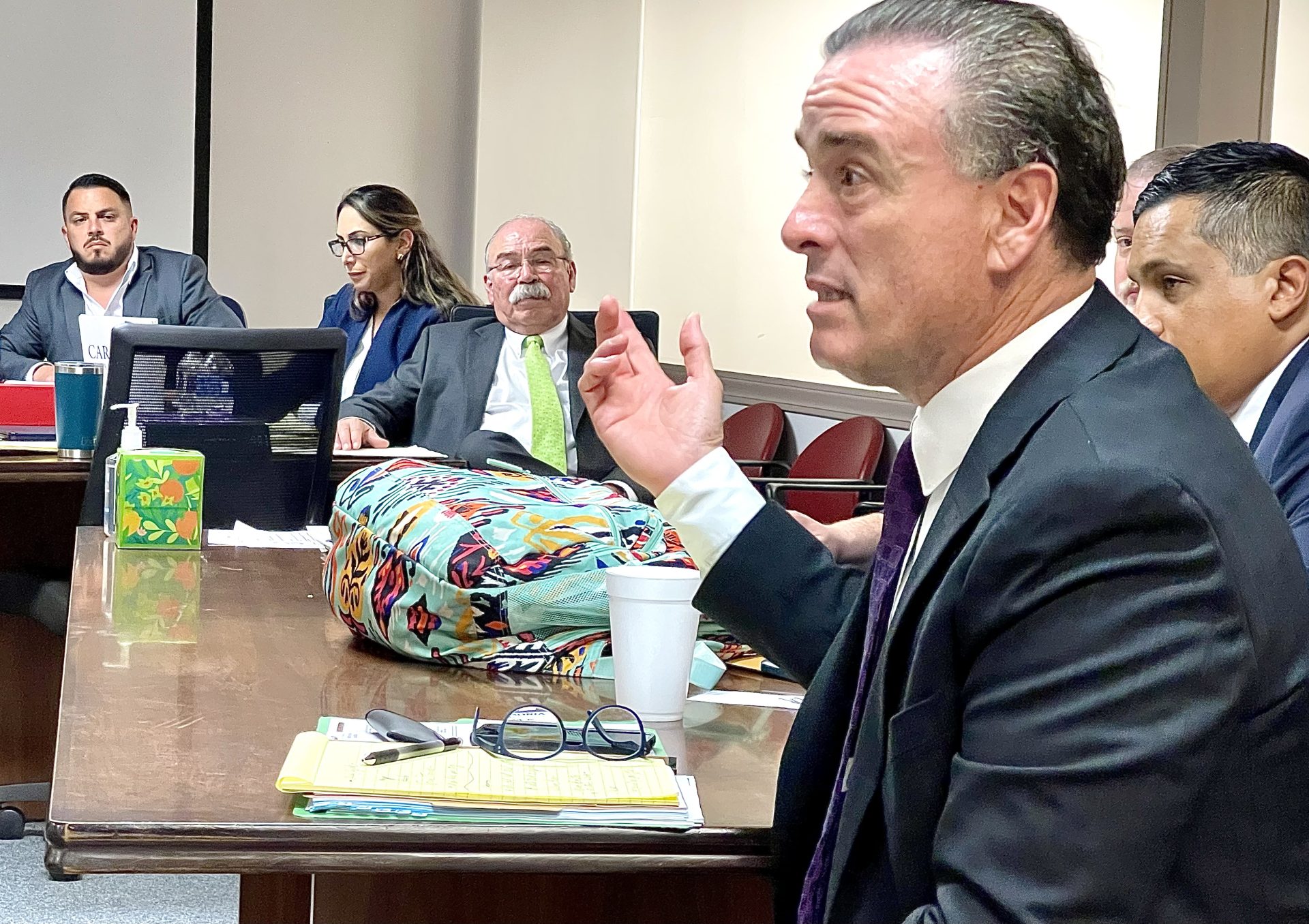
He quipped that the order could refer to him as “Señor Judge,” a reference to the typographical error that had sparked the filing error in the first place.
As he left the courtroom, Johnson issued another missive: “All done. Well, I’ve gotta sign the order, but I’m gonna read the whole damn thing,” Johnson said.
Trial is expected to resume Tuesday morning. But it’ll be hard going for Treviño.
Bañales’ last standing order denied her the ability to call witnesses who could testify that Segovia and his campaigners also allegedly assisted voters illegally.
Without those witnesses, Salinas’ hope of disqualifying droves of Segovia’s voters is dead on arrival. He has previously alleged that Segovia’s campaign illegally aided more than 500 voters.
“My understanding of the law is that in these kinds of cases they serve a public interest and you’re just trying to get to the truth, right?” Salinas, her attorney, said after last Thursday’s brouhaha.
“Which is something that I think we haven’t been allowed to do.”
Here’s the latest update:
Judge declares new winner in Hidalgo County JP primary runoff
PREVIOUS COVERAGE:
Recusal requested in Hidalgo County JP contest after filing error
Intellectually disabled man forced to vote in Hidalgo County JP race
Testimony begins in Hidalgo County JP election contest trial



